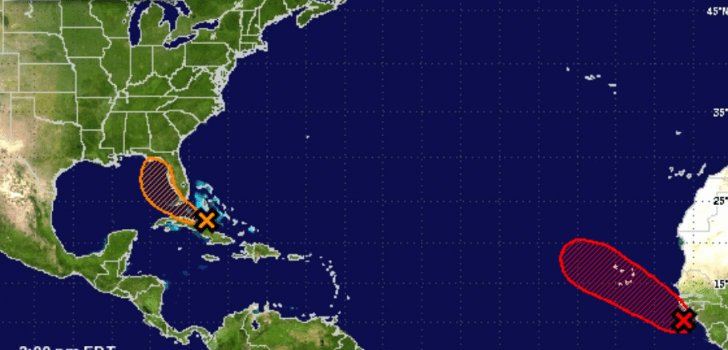Tropical Storm Erika, formerly on track to slam Florida, weakened early Saturday morning as it pushed over Cuba and Hispaniola.
As the tropical storm was steadily moving towards Cuba, it dispersed due to higher topography and adverse weather conditions. The National Hurricane Center called off all tropical storm warnings and watches associated with to the storm at around 9 a.m.
Even with losing strength, the tropical storm still drenched the Dominican Republic and Haiti. The storm also caused extensive devastation on the little Caribbean island of Dominica, leaving about 31 people missing and killing more than 20.
Speaking on Friday, Dominica Prime Minister Roosevelt Skerrit said, “The extent of the devastation is monumental. It is far worse than expected,” adding, “We have, in essence, to rebuild Dominica.”
The tropical storm also caused damage to crops with a value of at least $16 million in in Puerto Rico, where at least 200,000 citizens lost power during the tropical storm.
The major effects to Florida will probably be high winds and heavy rain during the first part of next week.
Rick Scott, the governor of Florida, announced a state of emergency prior to the tropical storm’s anticipated advance late Sunday.
As the Puerto Rico, Lesser Antilles, Haiti, Dominican Republic, and soon Cuba can verify, even a weak cyclone is quite capable of making a lot of rain. The formal strength of the tropical storm is only gauged by the highest wind somewhere in the whole storm, but other effects are also significant and shouldn’t be disregarded.
The latest 5-day rainfall forecast shows large amounts of precipitation for fundamentally all of Florida, but chiefly along the west coast.
Stay Connected